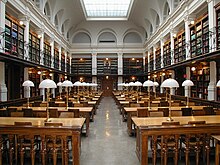HSC GENERAL STREAM RESULT 2018 DECLARED AT http://www.gseb.org/
Result Date :- 31-5-2018
Result Availabel at 31-5-2018. 8:00 AM.
GSEB HSC Result 2018 is announcing soon in the 4th week of May 2018. Gujarat Secondary and Higher Education Board (GSEB) is the main authority to regulate and control the 10th & 12th examination in the state of Gujarat. The board was founded on 1st May 1960. The headquarter of Gujarat Board is located in Gandhi Nagar, Gujarat. The GSEB board is responsible to organize and declare the result for matric & intermediate exams. Students can get here the complete information about Gujarat Board 10th result 2018.
Every year, Lacs of student appear in the Gujarat HSC examination. The board will release the GSEB HSC result 2018 through online mode. Students those will appear in the 12th board examination can check the result after two months of the examination.
GSEB 12th result 2018 can be checked by entering the exam roll number which will be of seven digits. The students are advised to take the printout of the result and keep it secure.
Gujarat Board 12th Result Date 2018
The board organized the 10th exam in the month of March 2018. The link for checking the Gujarat HSC result 2018 will be given in our article after it will be announced by the board.
Previous year the exam was conducted from 15th March to 25th March and the result was published on 29th May. For the year 2018, the GSEB HSC result is declaring in the third week of May 2018
Welcome to General Knowledge Quiz Archive of GKToday. This section comprises GK Questions from 2008 to 2018 on static subjects including Indian History, Geography, Economy, Policy, Banking, Society, Environment etc. for competitive examinations including SSC, UPSC, UPPSC, RPSC, MPSC and Other states exams, IBPS, Bank PO, CDS, NDA and all other examinations. Quiz 667: General Knowledge for State Exams August 21, 2017 GKToday's daily General Knowledge Quiz 667 on General Knowledge multiple choice questions on miscellaneous topics such as pylons of the Egyptian temples, mineral producer states, deflation and disinflation, India's first Uranium Mine, Tabo Monastery, Official languages of UN, President of India Quiz 666: General Knowledge for All Examinations August 14, 2017 GKToday's daily General Knowledge Quiz 666 on General Knowledge multiple choice questions on miscellaneous topics such as canals, India's petrochemical centres, port sequence from south to north, boundaries of India's neighbourhood countries, Melanesia region; features of Eutrophic lakes; No-confidence motion; unopposed elected presidents of India; Krishnadeva Raya... Quiz 665: Miscellaneous GK for All Examinations August 12, 2017 GKToday's daily General Knowledge Quiz 665 on General Knowledge multiple choice questions on miscellaneous topics such Australia group; agreements under World Trade Organization (WTO); Berne convention; Tracks in diplomacy; Bikini Day; shortest recorded war in human history; Shatt-al-Arab region etc. Quiz 664: General Knowledge for All Examinations August 11, 2017 GKToday's daily General Knowledge Quiz 664 on General Knowledge multiple choice questions on miscellaneous topics such as metals as conductors of heat; key features of Bitumen; Belt of Doldrums; Crops in India; Examples of Equatorial crops; Branches of Science;Piedmont plateau; ancient port site of Godavaya; Western Disturbances Quiz 663: History and Geography – For All Exams August 10, 2017 GKToday's daily General Knowledge Quiz 663 on History and Geography with multiple choice questions on topics - Isohyets; concept of differential heating; Gedrosia; Rummindei Pillar Inscription; contemporary rulers of Buddha; Deimachus of Plataea; Kalpasutra; Kasyapa Matanga; Kahapana and Arikamedu Quiz 662: Finance, Business & Economy for Banking Exams August 9, 2017 GKToday's daily quiz 14 on Finance, Business & Economy for Bank exams with multiple choice questions on topics like shell companies, size of Indian economy, sugar production, size of new currency notes, G3 economies, coal mines, BIMSTEC, passive instruments and India's printing press locations for currency notes.... Quiz 661: Indian Art and Culture for SSC Examinations August 4, 2017 GKToday's daily quiz 13 on Indian Art & Culture for SSC and State Exams with multiple choice questions on topics like Heritage sites, temples, paintings, folk dances, etc. Quiz 660: General Science for SSC Examinations August 3, 2017 GKToday's daily quiz 12 on General Science for SSC and State Exams with multiple choice questions on Electronegativity, Plane Mirror, High-Refractive-Index Polymer, Leukocytes, digestive system, and so on.. Quiz 659: Business, Finance & Economy for SSC and Banking Exams August 2, 2017 GKToday's daily quiz 11 on Business, Finance & Economy for SSC and State Exams with multiple choice questions on RBI, Monetary Policy Committee, Currency, SDR, Taxes, and so on... Quiz 658: Indian and World Geography for SSC Examinations August 1, 2017 GKToday's daily quiz 658 on India
